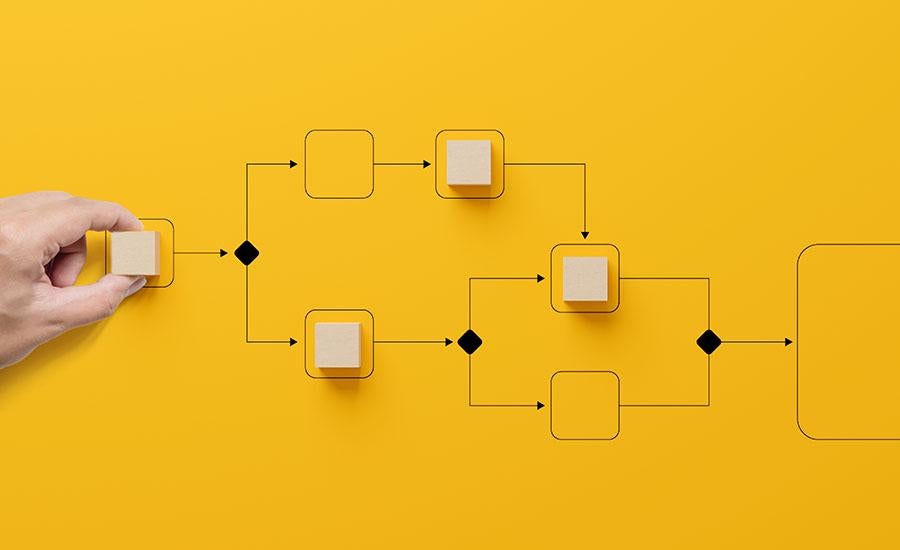Grades:
3rd Grade, 4th Grade, 5th Grade
Analyze and interpret data they have collected from an owl pellet dissection to answer a question. Use a dichotomous key to identify bones of prey species found in an owl pellet. List of Materials owl
Grades:
4th Grade, 5th Grade, 6th Grade
In this engaging lesson, students will summarize the environmental impact of obtaining and using fossil fuels and recommend solutions for reducing use of fossil fuels. Students use chocolate chip
Grades:
5th Grade
Power point with parts of a flower, worksheets and short quiz provided
Grades:
3rd Grade, 4th Grade, 5th Grade, 6th Grade
Over two days students will build lego mazes to code their Sphero minis through. Materials needed are; the planning page, legos, Sphero minis, Sphero EDU App, iPads, and Lego build plates.
Grades:
3rd Grade, 6th Grade
Students will be able to identify the 4 main nutritional needs for chickens, and why they are needed. They will be able to read a recipe and create ratios based on the recipe. For this first lesson
Grades:
3rd Grade, 4th Grade, 5th Grade, 6th Grade
Students will create an original design using only plastic bags in this creative lesson. They will reuse plastic bags to create a useful product they could sell. Students will use evidence to
Grades:
6th Grade
Students will plant and observe plants from seed to full germination while making observations on growth in this engaging lesson. This will be done using a science notebook to record germination
Grades:
1st Grade
Students will grow to understand what decomposition is and why it is a vital part to their compost bins success.
Grades:
5th Grade
Students develop an understanding of patterns and how genetic information is passed from generation to generation. They also develop the understanding of how genetic information and environmental
Grades:
Kindergarten, 1st Grade, 2nd Grade
In this hands-on lesson, students develop an understanding of the life cycle of a bean. They will grow their own beans and observe the growth over time. Various resources are included along with math
Grades:
6th Grade
In this unit, students will study the effects of air pollution and engineer an environmentally friendly air filter to reduce pollutants in the air using common household items and recycled materials
Grades:
5th Grade
Students will germinate seeds and record any observations during the process.
Grades:
Kindergarten, 1st Grade, 2nd Grade, 3rd Grade
The students will create a Three Sisters Garden by participating in a teamwork activity, listening to a read aloud, watching a video, creating a diagram, planting the garden, and creating a video
Grades:
6th Grade
In this unit, students will study the effects of atmospheric pressure and air resistance on objects to engineer a landing apparatus to land cargo in space. They will then write a Claim based on
Grades:
Kindergarten, 1st Grade, 2nd Grade
Students will learn and explain about pollination and how it helps plants to grow and reproduce. After reading about pollinators, students will collaborate and communicate effectively with their peers
Grades:
6th Grade
In this unit, students will study the effects of acid rain and chemically engineer an environmentally friendly solution to neutralize the acid in a simulated river contaminated by factory run-off
Grades:
3rd Grade, 4th Grade, 5th Grade, 6th Grade, 7th Grade, 8th Grade, 9th Grade, 10th Grade, 11th Grade, 12th Grade
It's time to learn about the engineering design process and apply our understanding to make a sandwich! This fun and engaging lesson is flexible and an opportunity to explore the engineering design
Grades:
6th Grade
In this 3rd and final lesson in a series of 3, students examine prior knowledge about the real-world problem of the Great Pacific Garbage Patch and apply their findings to design solutions. Students
Featured
Scatterplots Using Stomp Rockets
Grades:
8th Grade
Students will use stomp rockets to collect data. With this data they will create and analyze trends of a scatterplot.
Grades:
6th Grade, 7th Grade, 8th Grade
Students will learn about the food chain, and the American Kestrel's place in it. Students will be able to classify organisms, construct a model of the North American Kestrel’s role in the food web
Featured
Mosquito Management
Grades:
3rd Grade, 4th Grade, 5th Grade
This lesson takes place in as classroom for one or more 60 minute class periods. The data collection portion may continue for 2+ weeks (or whatever time frame you decide). An emphasis is placed on the
Grades:
6th Grade
In this lesson, students will be learning about the challenges of farming in space for future settlements. Specifically they will focus on the difficulty of testing whether plants will grow in soil
Grades:
6th Grade
Students construct models of various molecules, create histograms of the frequency of elements, and diagram parts of an atom. Students will deepen their understanding of matter--that tiny particles
Grades:
4th Grade, 5th Grade, 6th Grade, 7th Grade, 8th Grade
Classes will prepare several garden bins for planting. By using a tape measure, students take into consideration the recommended distances of seed planting described on the seed packet and the
Featured Lesson Plans
Check out these notable lesson plans.

Featured
Zippy the Elf's Zipline Zone
Grades:
6th Grade
In this creative engineering design lesson, students are challenged to use an inclined plane to create a safe and exciting zipline park for Zippy the Elf. This lesson reviews simple machines and has

Grades:
3rd Grade
This lesson is about exploring Arizona's state bird, the cactus wren, that lives in the desert, has special body parts and behaviors that help it survive in its harsh environment. Students will learn

Grades:
Kindergarten, 1st Grade
In this primary Kindergarten-1st grade STEM lesson, students will learn to define algorithm, bug, and debug in reference to programming. Through engagement with a virtual simulation, students will


